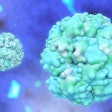Solvd Health CEO Dr. Keri Donaldson is responding to critics of his company's machine learning classifier clinical laboratory test that uses genotyping to aid healthcare providers in opioid use disorder (OUD) assessments in adults prior to first-time prescriptions.
Donaldson spoke out after a terse physician-backed letter dated April 4 and posted on supportprop.org raised points suggesting that the genetic test is not clinically useful.
Signed by Drs. Michael Abrams, Danielle Dick, Andrew Kolodny, and others, the letter attempts to influence an anticipated Centers for Medicare and Medicaid Services (CMS) coverage decision on AvertD. The clinical laboratory genetic multiplex test gained premarket approval from the U.S. Food and Drug Administration (FDA) in December 2023 following breakthrough device designation in 2018, a clinical study in 2019, test modifications, and additional data and analysis submissions to the FDA.
Since breakthrough device status
"This is a stronger, more well-thought-out technology," Donaldson said in a call with LabPulse.com, adding that working through the suggestions made in October 2022 by the Clinical Chemistry and Clinical Toxicology Devices Panel of the FDA's Medical Devices Advisory Committee was key. "AvertD is the first FDA-approved machine learning risk score for any indication and the first type of this test that has been approved by the FDA." The test fosters incredibly informative discussions between patients and doctors, Donaldson continued.
In recent years, research has demonstrated that numerous genes influence the risk of OUD. Genetics are one risk factor. Donaldson has said that the test addresses the need around developing safer prescribing practices and limitations of current risk-assessment tools.
AvertD analyzes a cheek swab (buccal sample). The prescription qualitative genotyping test works through DNA extraction and amplification to detect and identify 15 single nucleotide polymorphisms (SNPs). Using a gene-based machine-learning classifier, AvertD reports information that allows an educational understanding and discussion of individual genetic risk of developing a potential OUD prior to the prescribing of oral opioids for acute pain.
"Our test is not predicting opioid use disorder, rather it is informing a patient of their personal genetic risk prior to being prescribed a first prescription of oral opioids for acute, nonemergent pain -- and it excludes patients being treated for chronic pain. The test has been shown to demonstrate an 18-fold difference in individuals that have an elevated genetic risk vs. nonelevated genetic risk. That's absolutely transformative in this space ... in terms of the ability to inform patients and providers of the genetic risks prior to prescribing."
Donaldson emphasized the importance of balancing the benefits of opioids for pain management against the risks of developing OUD and choosing multimodality pain control when it is a viable alternative.
Solvd Health is not alone in modeling addiction risk using SNP targets. In a written statement provided by Solvd, the company referenced that its patents cover certain claims and are obstacles to others in the test segment. "Many of the individuals behind recently submitted letters opposing the approval have significant conflicts of interest with seeing AvertD come to market, including developing competitive technologies and/or research grants that could potentially lose funding due to AvertD’s approval. We are conducting our due diligence to review and document those conflicts."
Letter points
The April 4 letter from Abrams and collaborators raised several points. It noted a lack of proper controls for ancestry, for example. It also warned of harmful consequences of the genetic test should results be inaccurate. Patients who test negative, and their clinicians, may have a false sense of security about the use of opioids. Furthermore, clinicians might refrain from prescribing opioids to patients who test false-positive.
However, Donaldson called the genetic information that AvertD provides a "missing piece of information" that can be used in better clinical decision-making and assured that the test does not function in terms of classifying a patient by their genetic ancestry. "It doesn't," he said.
"With any risk assessment tool, there is the potential for overreliance on the results," a 2022 executive summary to the Clinical Chemistry and Clinical Toxicology Devices Panel, available on the FDA's website explained. "Labeling and education will further reinforce that AvertD is intended to be used in combination with a clinical evaluation and assessment of the patient."
Conditions of FDA authorization
Donaldson added that Solvd has followed the FDA's five conditions of authorization that were set forth in December. Those steps included educational program and materials. Conditions one through four are complete, according to the company. Regarding the post-approval study (condition five), the study protocol has been approved.
"We remain incredibly positive about the prospect of AvertD offering another layer of information to educate patients, supporting conversations with medical professionals with a degree of specificity not available until now," Solvd said in the written statement to LabPulse. "AvertD offers another tool in a medical professionals’ toolbox to encourage valuable conversations prior to opioid prescription."
AvertD was trained and developed using clinical data from over 7,000 individuals, Solvd said. The feasibility study was published in 2017 using TreeNet; a 2021 paper in the Annals of Clinical and Laboratory Science penned by Donaldson, and Drs. David Cardamone, Michael Genovese, Joseph Garbely, and Laurence Demers described the development and validation of AvertD in its multicenter U.S. clinical study, a blinded study of patients with a history of exposure to prescription oral opioids.
Builds on previous work
Solvd started as Prescient Medicine. Prescient Medicine acquired the molecular diagnostics company AutoGenomics Inc. in 2019 for its Infiniti platform, a 510(k) exempt, automated, microarray-based multiplexing diagnostic system with applications in personalized medicine, pain management, cardiovascular health, mental health, women’s health, oncology, infectious diseases, and genetic disorders, according to a 2019 news release. The AvertD test is designed to be used with the Infiniti Plus analyzer, a class 2, 510(k)-cleared medical device which is sold separately, according to the 2022 executive summary.
AvertD is not intended to be used in patients being treated for chronic pain, the FDA noted with its authorization. AvertD may help patients who are concerned about being treated with an opioid for acute pain make better-informed decisions.
In its statement, the FDA recognized that there generally exists some uncertainty around benefits and risks in premarket decision-making for devices. However, given the totality of available evidence and the urgent need for medical devices that can help assess the risk of developing OUD, the FDA determined that there was reasonable assurance of AvertD's safety and effectiveness, taking into consideration available alternatives, patients' perspectives, the public health need, and the ability to address uncertainty through the collection of post-market data. More info is available at the FDA's site.



















